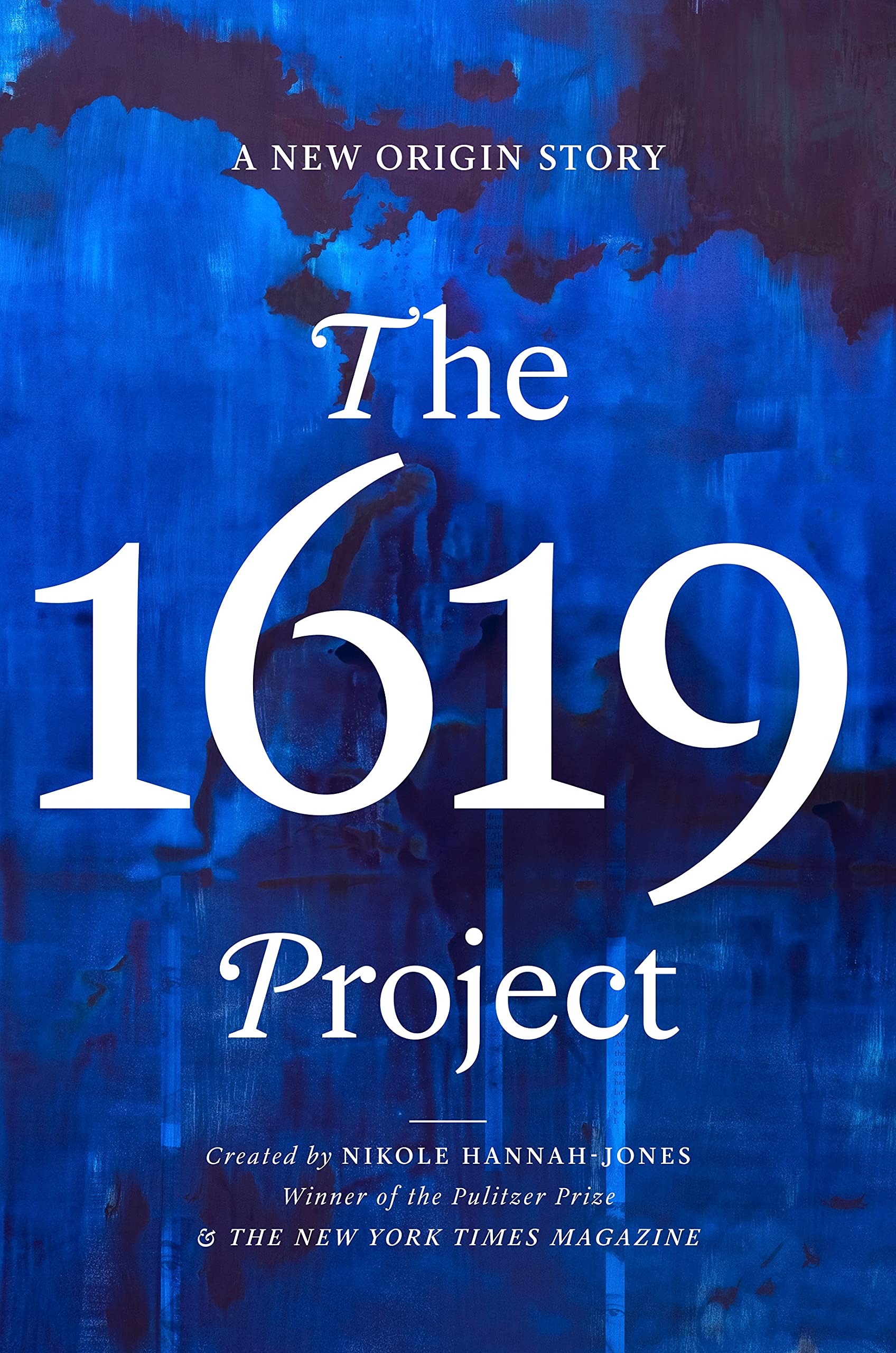A dramatic expansion of a groundbreaking work of journalism, The 1619 Project: A New Origin Story offers a profoundly revealing vision of the American past and present.In late August 1619, a ship arrived in the British colony of Virginia bearing a cargo of twenty to thirty enslaved people from Africa. Their arrival led to the barbaric and unprecedented system of American chattel slavery that would last for the next 250 years. This is sometimes referred to as the country’s original sin, but it is more than that: It is the source of so much that still defines the United States.
The New York Times Magazine’s award-winning “1619 Project” issue reframed our understanding of American history by placing slavery and its continuing legacy at the center of our national narrative. This new book substantially expands on that work, weaving together eighteen essays that explore the legacy of slavery in present-day America with thirty-six poems and works of fiction that illuminate key moments of oppression, struggle, and resistance. The essays show how the inheritance of 1619 reaches into every part of contemporary American society, from politics, music, diet, traffic, and citizenship to capitalism, religion, and our democracy itself.This is a book that speaks directly to our current moment, contextualizing the systems of race and caste within which we operate today. It reveals long-glossed-over truths around our nation’s founding and construction—and the way that the legacy of slavery did not end with emancipation, but continues to shape contemporary American life.Featuring contributions from:
Leslie Alexander • Michelle Alexander • Carol Anderson • Joshua Bennett • Reginald Dwayne Betts • Jamelle Bouie • Anthea Butler • Matthew Desmond • Rita Dove • Camille T. Dungy • Cornelius Eady • Eve L. Ewing • Nikky Finney • Vievee Francis • Yaa Gyasi • Forrest Hamer • Terrance Hayes • Kimberly Annece Henderson • Jeneen Interlandi • Honorée Fanonne Jeffers • Barry Jenkins • Tyehimba Jess • Martha S. Jones • Robert Jones, Jr. • A. Van Jordan • Ibram X. Kendi • Eddie Kendricks • Yusef Komunyakaa • Kevin M. Kruse • Kiese Laymon • Trymaine Lee • Jasmine Mans • Terry McMillan • Tiya Miles • Wesley Morris • Khalil Gibran Muhammad • Lynn Nottage • ZZ Packer • Gregory Pardlo • Darryl Pinckney • Claudia Rankine • Jason Reynolds • Dorothy Roberts • Sonia Sanchez • Tim Seibles • Evie Shockley • Clint Smith • Danez Smith • Patricia Smith • Tracy K. Smith • Bryan Stevenson • Nafissa Thompson-Spires • Natasha Trethewey • Linda Villarosa • Jesmyn WardThe 1619 Project: A New Origin Story is a groundbreaking work of journalism and historical analysis that reframes American history, placing the consequences of slavery and the contributions of Black Americans at the very center of the national narrative.
Edited by Pulitzer Prize-winning journalist Nikole Hannah-Jones, The 1619 Project includes essays, poems, timeline, and stories from a wide range of contributors, including historians, sociologists, artists, and activists. The project argues that the arrival of the first enslaved Africans in the British colony of Jamestown, Virginia, in 1619 was the moment that the United States was truly born, and that the legacy of slavery and racism has shaped the country in profound and enduring ways.
The project has been met with both praise and criticism. Some historians have argued that it oversimplifies the history of slavery and race in America, while others have praised it for its ambitious scope and its ability to spark a national conversation about the country's past. Regardless of one's perspective, there is no doubt that The 1619 Project is a landmark work that has helped to reshape our understanding of American history.
In her introduction to the project, Hannah-Jones writes: "This project is not just about the past. It is also about the present and the future. It is about understanding how the legacy of slavery and racism continues to shape our lives today, and how we can build a more just and equitable future for all Americans."
To learn more about the 1619 Project, visit the project's website or read the book, which is available in print and electronic formats.




